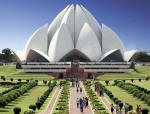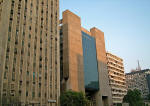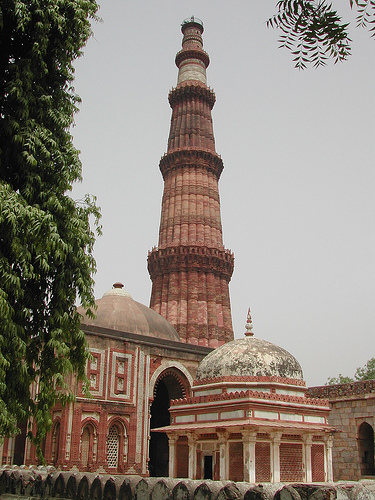|
Home
SHIMLA
KULLU
KANGRA
CHAMBA
DHARAMSHALA
PALAMPUR
MANDI
LESSER
KNOW HIMACHAL
TIBETANWORLD
Sujanpur
Tira
Kinnaur]
Hotel Booking
Tour
Booking
Photo
Gallery
Trekking
. |
|
|
|
Delhi has the most vibrant
history among prominent
cities or towns of
India. It was the "capital of seven empires" in
Indian history and has over 60,000 recognized monuments built over
several millennia, as per the Archaeological Survey of India. It is
believed to be the site of Indraprastha, founded by the Pandavas of
the
Mahabharata around 5000 BC. The name Delhi may originate from the
Persian word Dahleez (Urdu: دہلیز)
(English: threshold, or frontier) or from the name of a Mauryan king,
Raja Dhillu. Another possible etymology is the the city's original
name, Dhillika. The people of Delhi are known as Delhi-ites. |
 |
 |
 |
| Known in India as the "Lotus Temple",
the Bahá'í House of Worship is one of the most famous landmarks in
Delhi. |
The skyline of Central
Delhi |
Connaught Place is the
commercial hub of Delhi.
|
|
The latter is a historical and
cultural term describing people of the old city and the associated
diaspora. The Persianized surname Dahelvi is also related to residents
of Delhi.
Delhi is a very cosmopolitan city
due to the multi-ethnic and multi-cultural presence of the vast Indian
bureaucracy and political system, and now expanding economy. There are
more than 160 embassies and an ever-growing expatriate population.
Delhi derives its historic
importance from its position in Northern India between the Aravalli
Hills to the southwest and the Yamuna river on whose western banks it
stands. This enabled it to dominate the old trade routes from
northwest India to the plains of the Ganges. As a result, it has
always been an important cultural and intellectual centre. Image
By Deepak Gupta |
 |
| |
The Qutub Minar is the world's
tallest brick minaret at 72.5 metres. |
With a
steadily-increasing quality of life, a booming
economy and consumer
market, and being the nation's capital, Delhi's cultural and intellectual
life too are burgeoning. Delhi also has hosts many of India's major
educational institutions, and many quality schools. It is home to a number
of think tanks, museums, art galleries, parks and theatres.
Delhi is famous for its Mughal,
Afghan, Hindu and British architecture. Its large and lucrative tourism
industry serves millions of international and domestic tourists. Besides
being the modern capital, Delhi was the capital of several great empires
of ancient
India.
The city is marked with several
ancient and modern monuments. Two World Heritage Sites, 72.5 m tall
Qutab
Minar and
Tomb of the Humayun, are in the metropolitan area. Other famous
landmarks include the
Delhi Fort,
India Gate,
Lotus Temple, Old Fort (Purana
Qila), Raj Ghat and Laxminarayan Temple.
New Delhi, houses several government buildings and official
residences. Important structures include the
Rashtrapati Bhavan, the
Secretariat, the Rajpath, the
Parliament of India, the
Jantar Mantar and
the Vijay Chowk.
Other tourist attractions include the
Appu Ghar, Delhi's disneyland; the Pragati Maidan, one of Asia's largest
exhibition grounds; the
Akshardham; the Mughal Gardens and Delhi
Zoological Park. |
|





